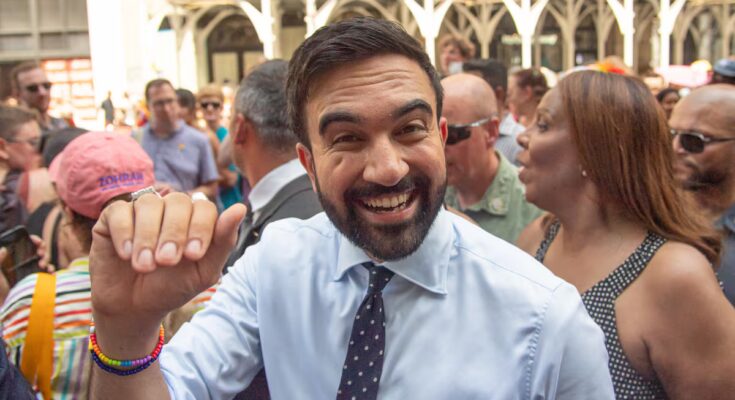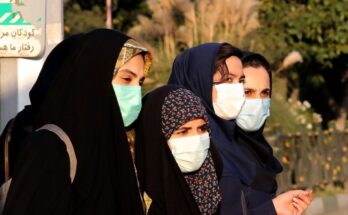Zohran Mamdani’s electoral campaign is already being studied by the European left and his speech on the night of his victory will probably go down in history as the emblem of a new model of progressive leadership in the West. Mamdani cited the legendary American labor leader and socialist Eugene Dabs, but also the historic Indian statesman Jawaharlal Nehru. In both cases, to evoke the end of an era and a new dawn.
With an enviable mastery of social networks and a strong aesthetic instinct, in just one year Mamdani and his team, supported by 87,000 volunteers, managed to forge the image of a pragmatic and, at the same time, idealistic candidate. A political leader who naturally takes on his different origins, moving nimbly Kurta to the suit and tie, but focused on a specific cause that transcends cultural and religious affiliations: the fight against the rising cost of living. The future mayor of New York managed to reconcile his affinity with immigrants and the popular sectors of the city with the image of a cultured and worldly man, who knows and takes on institutional rigor and does not give priority to challenging its codes. He walked down the street, talking to people, sometimes in Arabic, Hindi or Spanish phrases. He used signage, whose colors and typography evoke the city’s taxis and MetroCards, but also the style vintage of the road signs of many countries in the South of the world, of the migrant neighborhoods of New York or of the posters of the old Bollywood. The song was also Bollywood Dhoom Pachale (“Make Noise”) which closed his victory speech. Mamdani was thus able to connect with those “forgotten by the politics of our city (…) the Yemeni owners of wineries, the grandmothers (Yes) Mexican women, Senegalese taxi drivers, Uzbek nurses, cooks and Trinidadian titas (aunts) Ethiopians”.
As the campaign progressed and Mamdani rose in the polls, his origins, particularly his Muslim identity, became the focus of Islamophobic attacks from his opponents, including former Democratic candidate Andrew Cuomo. Yet Mamdani, who unequivocally condemned the Palestinian genocide, was exquisitely even-handed in his victory speech. He called for “not to hesitate in the fight against the scourge of anti-Semitism”, calling for “a city in which Islamophobia can never again be trafficked and elections won”.
Moustafa Bayoumi explains in Caretaker that, against the backdrop of the explosion of Islamophobia following the September 11 attacks, generations of young Muslims “have built local political institutions and bet on a different type of politics” that embraces identity without falling into superficiality. “That movement has grown, quietly but steadily, for years” and, he concludes, “Mamdani is now its best and most accomplished expression.” Despite a widespread image of the Muslim community as traditional, even retrograde, the data shows a clear identification of its members with progressive parties, not only in New York. Bayoumi compares the phenomenon to the situation of the Jewish community in the late 19th and early 20th centuries. Victims of growing anti-Semitism in Europe and America, many Jews then joined the internationalist workers’ movement, the only one that defended them.
Greater leadership is urgently needed bridge or hybrids like Mamdani’s in our societies polarized in their views on immigration and reluctant to digest their colonial past. Leaders who know the mixed-race realities of migrant communities and the challenges of combining loyalty to their own traditions and languages with the aspiration to be one more in the host society. A leadership that connects the North with the South of the world and that speaks a direct language, understandable to all and, at the same time, anchored in solid analytical concepts. Western leaders who can influence relationships with governments in the Global South through familiarity and understanding. It is worth noting the considerable echo that the above-mentioned Nehru quote had in the Indian press.
Mamdani is perhaps the star of the moment, but it is worth remembering other leaders of immigrant origin or with roots outside the West who precede him. I think of the Labor mayor of London, Sadiq Khan, of Pakistani Muslim origins; in the American congresswoman and democratic socialist Alexandria Ocasio-Cortez, of Puerto Rican origin – who, among other things, said of Mamdani that he is “a generational leader” – or in the former French socialist justice minister, Christiane Taubira, of Guyanese origin. On the other hand, some conservative political leaders such as former British Prime Minister of Indian origin Rishi Sunak, or former South Carolina governor Nikki Haley, of Sikh origin, have chosen to downplay or erase these origins to conform to the expectations of their bases. In the progressive field, however, the future lies in promoting concrete material transformations for the majority, without ignoring the historical weight of ethnic origins and cultural affiliations in the distribution of power and wealth. This is what Mamdani seems to have understood so well.



